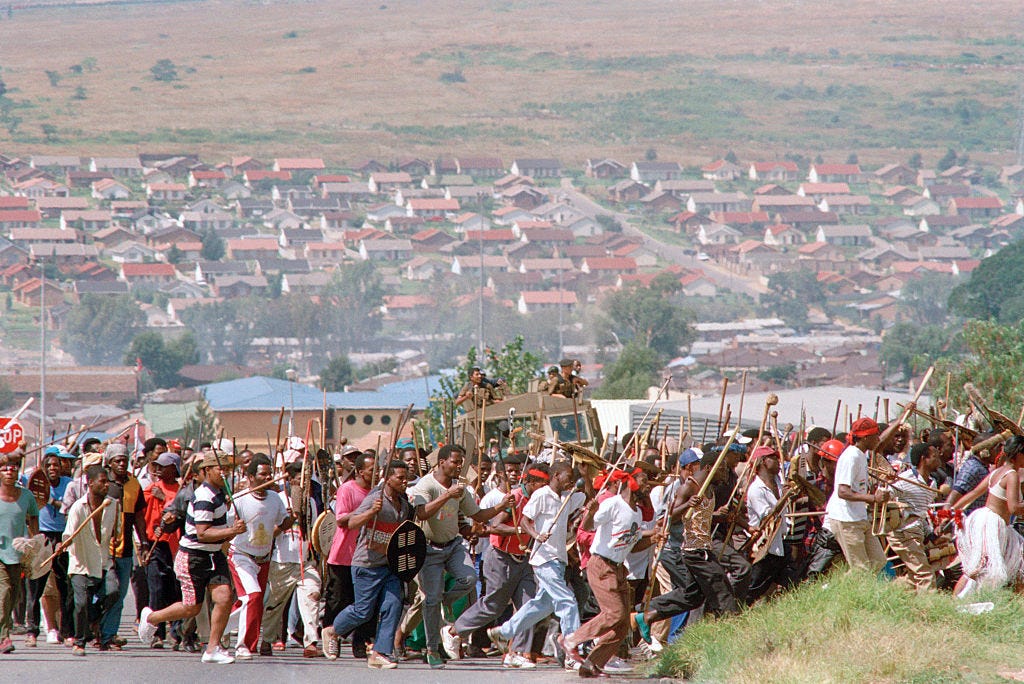What healing has to do with justice
Therapist, organizer, and writer Prentis Hemphill on mental health, building community, and preparing for the political work ahead
Prentis Hemphill came to prominence as the in-house therapist — technically, “healing justice director” — of the Black Lives Matter movement. Today Hemphill is among the leaders of a vanguard bringing trauma awareness, well-being, and mental health to the sometimes fractious world of progressive activism.
They wear many hats: Hemphill is a practicing therapist and somatics teacher in low-cost clinics serving marginalized people; a political organizer, podcaster and the founder of The Embodiment Institute; and author of the 2024 book What It Takes To Heal: How Transforming Ourselves Can Change The World.
We talked to Hemphill about the emotional and spiritual dynamics of this moment in politics, how healing enables building community and political power, and why figuring out how we’re all in this together is key to fighting fascism and finding justice.
We hope The Ink will be essential to the thinking and reimagining and reckoning and doing that all lie ahead. We want to thank you for being a part of what we are and what we do, and we promise you that this community is going to find every way possible to be there for you in the times that lie ahead and be there for this country and for what it can be still.
So I just wanted to start by checking in. How have you been responding to the past few weeks? What is alive for you or uppermost in your mind right now?
Just after the election, I was holding a lot of space for people. Our organization held a virtual space and something like 2,500 people showed up the day after the election. And then I flew almost immediately to Oakland to hold space with Angela Davis and Lama Rod Owens there.
So I've been doing a lot of that, just holding space for people's big emotions. Fear, I mean terror, anger, frustration, despair.
In the last few days, last week, I've been in more strategic conversations with leaders. But you know, really, what's been on my mind is something that's a little more abstract. I've really been considering how our culture of individualism has eroded our relational skills, and how that impacts how we organize.
You know, it impacts everything that we saw in the election, but it also impacts any kind of progressive reorganization or response in this moment. Do we actually have the kind of skills and moves to reach for each other and try to build together? So that's what I've really been considering.
What are those relational skills? What do you see the deficits being?
I think about our reactivity, how that's fostered in a lot of our online environments.
When we think about what they call the polycrisis, the multiple compounding crises, what it's actually going to take to untangle these really tight knots is not reactivity. It's going to take some other kind of presence and way of being and thoughtfulness.
But we are mostly in a reactive state, and a reactive, fearful state is an increasingly isolating state. I'm just going to protect me and mine, when it really comes down to it.
And I think that keeps us from doing a lot of other moves, moves around empathy or connection, or solidarity; it even keeps us out of our own creativity. And there's so many things that can't happen.
I can't listen to you if I'm protecting myself all the time. I can't imagine what we could do together if I feel like everything that is mine is being taken away from me.
So I just think a lot about the scarcity and isolation mode that I think a lot of us are increasingly in, and how that's exactly, I don't want to say wrong because it makes sense, but it's like the most unhelpful state we could be in.
It's interesting when you say we, because I feel like a lot of people are pointing out that scarcity is unevenly distributed. And there are people that are much more afraid for very good reasons. But It does seem like people are afraid at all levels, no matter how much privilege or how much insulation they might have.







